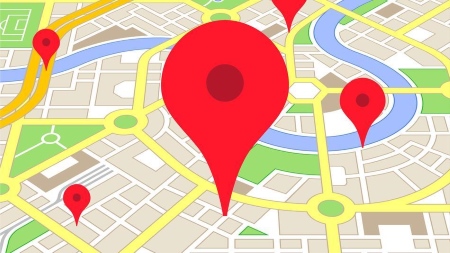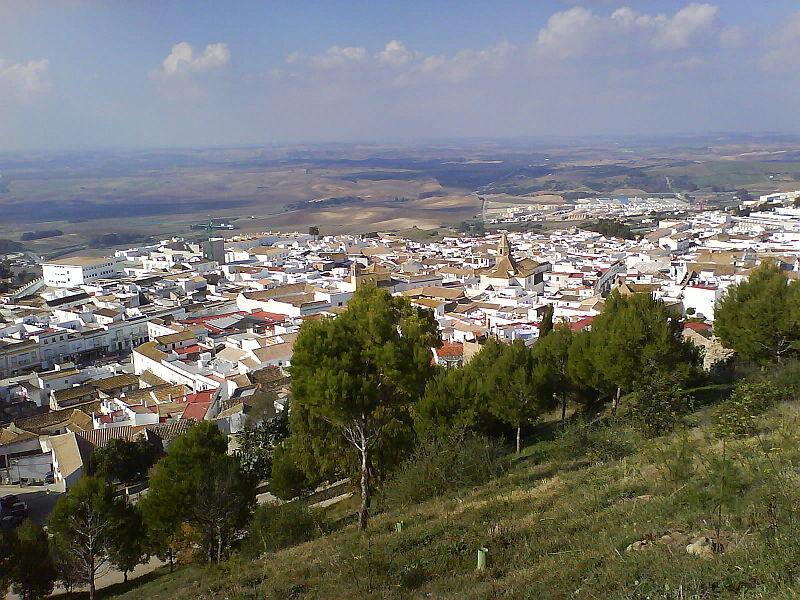Medina Sidonia, Andaluzia, Spain
Suggest Place to Visit
3145
Track to location with GPS |
 |
The first population settlements in the area of which we have evidence, date from the Late Bronze Age. A large quantity of fragments of ceramic materials made by hand and some lithic tools have been found in the Cerro de las Madres. It seems that these inhabitants were related to the Tartessian culture.
Subsequently, the arrival of Phoenician settlers from Sidon takes place, who will found a city (with the same name as their city of origin) on the basis of the previous indigenous occupation.
In the III century a. C. the Romans will occupy all the peninsular territory that previously was in the hands of the Carthaginians. Around the 1st century, a new urban nucleus will be built that will occupy the entire space of what is now the Historic Complex. By concession from César Augusto, the city promotes its former municipal status and becomes a colony with Roman law (civitas optimo jure). She was known by the name of Asido, Caesarina, or fully as Asido Caesarina Augusta. It was located in the Later Province of Betica, belonging to the Hispalensis legal convent (with capital in Hispalis).
It was the capital of the province in Visigothic times and episcopal seat.
In 712 the city is conquered by the Muslim military Musa, thus becoming one of the first territories occupied during the Muslim invasion of the Iberian Peninsula. It was the capital of the Muslim cora called Cora de Sidonia (also known as de Saduna). Alfonso X the Wise reconquered the city on September 22, 1264, occupying the border line against the Kingdom of Granada, which is why it appears in some medieval document with the name ´´de la Frontera´´.
In times of the Reconquest it was the seat of several military orders. Among them are the Order of Santiago and the Order of Santa María.
In 1440 it became part of the Señorío de los Duques de Medina-Sidonia.
Titles and emblems
Title of Very Noble and Very Loyal: Given by King Felipe IV in 1661, in recognition of the participation of the residents of Medina-Sidonia in the attempt to recover Portugal for the Spanish crown.
City Title: Given by King Henry IV in 1472, at the request of the Duke of Medina-Sidonia, in response to the good services provided by the town until then in the fight against the Moors.
Treatment: Until the 19th century and the beginning of the 20th century, it was given the treatment of Illustrious Medina-Sidonia Town Hall, later being modified by that of Excellency.
The city of Medina-Sidonia is a Spanish municipality in the province of Cádiz, Andalusia. In 2008 it had 11,514 inhabitants. Its surface area is 493 km² and has a density of 23.62 inhabitants / km². Its geographic coordinates are 36º 27´ N, 5º 55´ W. It is located at an altitude of 337 meters and 40 kilometers from the provincial capital.
It is a Historic-Artistic Site and a Site of Cultural Interest.
Medina Sidonia, a three-thousand-year-old city sculpted through the centuries by different cultures, reaches the 21st century considered Historical Artistic Heritage of Cultural Interest. Proud of these hallmarks of the Municipality, we asidonenses are preparing to face a future full of potentialities, in which business development, the tourist thrust, the strategic geographic location, the benefits of our climate, the landscape resources, the quality of life and a long etcetera little by little cease to be challenges to be reached to become standards that flag our town.
This new panorama forces us to update the Medina Sidonia website to adapt to the Information and Communication Society and to offer a new channel of interaction between the Public Administration and citizens. The new portal was born with the intention of offering municipal, tourist, social, cultural, artistic information, etc .; to enable the download of documentation of interest to the citizen; to collect an updated directory of businesses and companies in our municipality; and to reserve a space for municipal news of interest. All this without forgetting the preponderant role of our rich Cultural, Historical and Natural Heritage.
Civil monuments
Roman Archaeological Ensemble (1st century)
o Water pipes and sewers
o Roman bridges:
+ La Hoya Bridge
+ Bridge of the Three Eyes
o Roman road [1]
Town Hall (16th century)
La Alameda (16th century)
Food Square (1871)
Thebussem Theater (undergoing reconstruction)
Stables of the Duke (16th century)
Tower of Doña Blanca de Borbón (XIV century)
Sources:
or Salty Fountain
o Big Font
o Fuente del Comendador (Fuente Chica)
o Source of the Azocarrem
o Fountain of the Naranjos
o Canaleja Fountain
Military monuments
Medina-Sidonia Castle (13th-15th century)
o Ruins of the Roman castellum
o Ruins of the Arab castle
o Ruins of the Medieval castle
Castle of Torrestrella (13th century)
Walled enclosure
o Arco de la Pastora
o Arch of Bethlehem
or Puerta del Sol
Religious monuments
Iglesia Mayor de Santa María la Coronada (XV-XVII century) [2]
Victoria Church (17th century)
Church of Santiago (16th century)
Church of San Juan de Dios (16th century)
Church of San Agustín
Church of the Love of God
Convent of San Cristóbal (known as Monjas debajo)
Convent of Jesus, Mary and Joseph (known as Monjas de Arriba)
Hermitage of Santa Ana
Hermitage of the Holy Martyrs (Visigoth of the 7th century)
Hermitage of Cristo de la Sangre (XV century)
Monastery of the Raven (18th-19th century)
During the summer different festivals are celebrated such as: the pepper festival, the snail, the chicharroná, the gazpacho festival, the burning of the ´´Juanillo´´ etc.
Comments
We don´t have yet any comments about:
Medina Sidonia
Medina Sidonia
Be the first to leave a comment as it is very important to inform other people
Outros locais a visitar
Within a radius of 20 km from:Medina Sidonia
Unfortunately we do not have information on other places to visit in this area yet
Hotel reservation near Medina Sidonia within a radius of 20 km
Why to book with ROTAS TURISTICAS
The best prices
Our partnerships with the world´s largest operators offer research on the best market prices.
More options
At Rotas Turisticos you can book the hotel, buy the air ticket, book the transfer from the airport to the hotel and vice versa, book the local excursions, rent the car, take travel insurance and consult the places to visit and where to go.
Holiday Tips & Destinations
Hundreds of holiday destinations with all the options that allow you to easily choose the destination that best suits your dream vacation.
ROTAS TURISTICAS
Links






